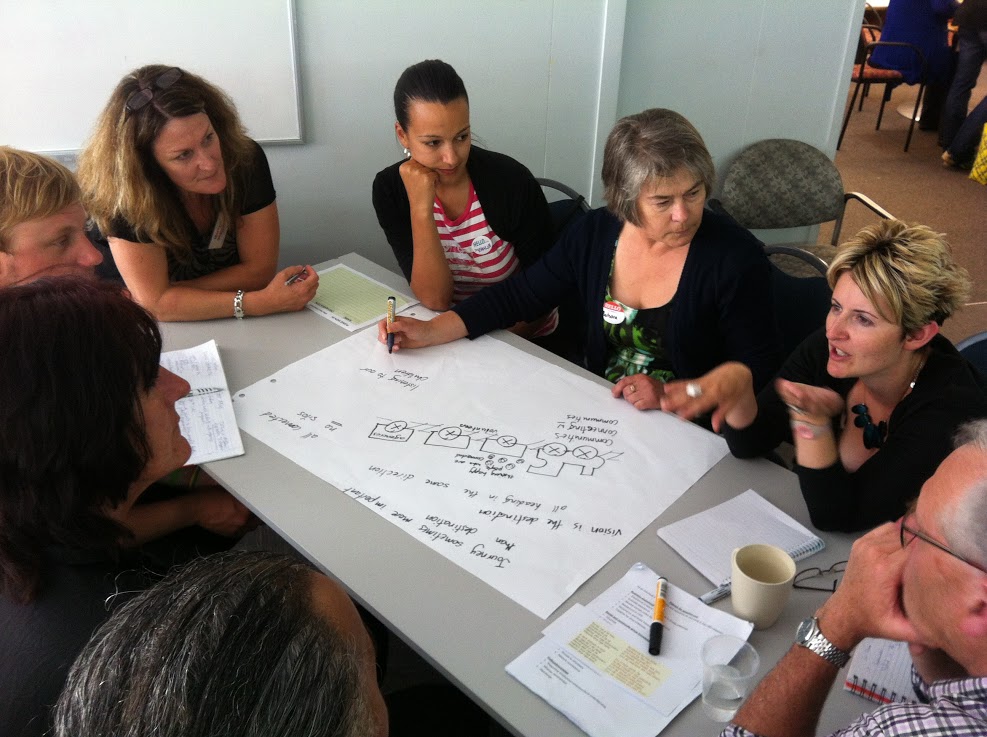




Growing diverse community leadership
Learn of the guiding factors that you can harness to support leadership development in your community - such as values, culture, vision, relationships and processes.
The CLD space is complex, diverse and always changing. So, rather than following a recipe or a road map or one leader out front, we are constantly learning and adapting our responses.
These common ingredients grow with every conversation, as we work with where the energy, enthusiasm and tensions are in our communities. Examples of common ingredients supporting a strong CLD approach include:
- having a strong culture around manaakitanga (hospitality), generosity, whanaungatanga (relationship), connection and respect for each other. These get us through the times when our different ways of doing things can be challenging
- growing a widely shared kaupapa (purpose) and inclusive tikanga (protocols) for how to work together. This is even though what each person contributes and the community-building actions, projects and pathways will all differ
- intentionally listening and noticing who is involved, who is marginalised, what needs to change to redistribute power and allow different people to lead at different times or in different ways, from many corners of the community
- encouraging people to take risks, to learn by doing and to be curious about reflecting, individually and together. Our plans don’t always work out, so we need intentional processes that support our openness to learn from, and with, each other along the way and adapt as we go. As we share our successes, failures, conflicts and questions we find shared wisdom about what needs to happen next.
Shared wisdom comes from listening, noticing and making sense of the patterns that emerge over time. Then from deciding over and over again the best way to respond. Shared inquiry builds knowledge grounded in practice. This knowledge is an important form of evidence that helps us validate, articulate, reinforce and expand our learning about what works and why.

Shared wisdom comes from listening, noticing and making sense of the patterns that emerge over time
Ideas for developing your leadership capability:
What learning spaces are available in your CLD work for noticing, inquiring into and making sense of what’s working, what’s not, and why? Are these collective or individual spaces?
Is it safe to say “I don’t know that we are on the right track. Let’s stand back and reflect on this a bit more” in your community meetings?
Do people listen well to different perspectives to find new ways forward or do people more often argue to defend their own position?
What could you do to create better discussion and shared understanding?
